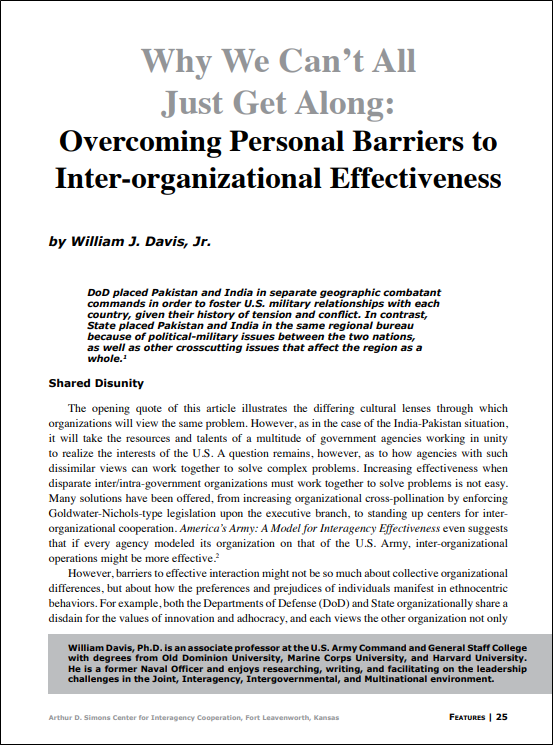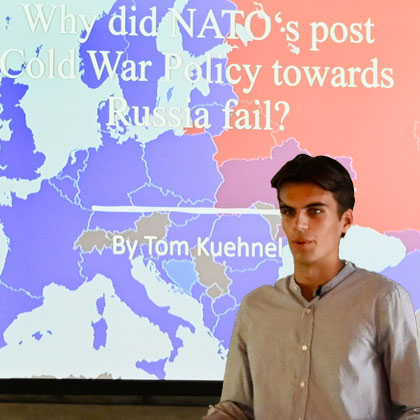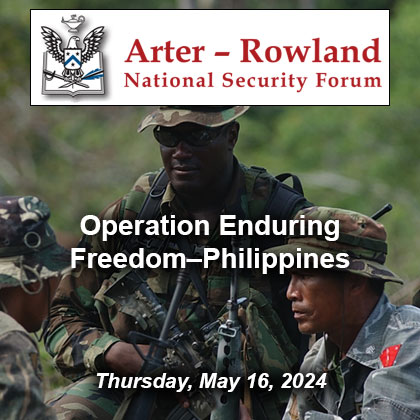Featured Article: Why We Can’t All Just Get Along…
Featured article:
Why We Can’t All Just Get Along: Overcoming Personal Barriers to Inter-organizational Effectiveness
by William J. Davis, Jr.
DoD placed Pakistan and India in separate geographic combatant commands in order to foster U.S. military relationships with each country, given their history of tension and conflict. In contrast, State placed Pakistan and India in the same regional bureau because of political-military issues between the two nations, as well as other crosscutting issues that affect the region as a whole.
The opening quote of this article illustrates the differing cultural lenses through which organizations will view the same problem. However, as in the case of the India-Pakistan situation, it will take the resources and talents of a multitude of government agencies working in unity to realize the interests of the U.S. A question remains, however, as to how agencies with such dissimilar views can work together to solve complex problems. Increasing effectiveness when disparate inter/intra-government organizations must work together to solve problems is not easy. Many solutions have been offered, from increasing organizational cross-pollination by enforcing Goldwater-Nichols-type legislation upon the executive branch, to standing up centers for interorganizational cooperation. America’s Army: A Model for Interagency Effectiveness even suggests that if every agency modeled its organization on that of the U.S. Army, inter-organizational operations might be more effective.
However, barriers to effective interaction might not be so much about collective organizational differences, but about how the preferences and prejudices of individuals manifest in ethnocentric behaviors. …
Read the full article
Why We Can’t All Just Get Along: Overcoming Personal Barriers to Inter-organizational Effectiveness PDF
Download the complete edition
IAJ 5-2 (2014) pdf
William Davis, Ph.D. is an associate professor at the U.S. Army Command and General Staff College with degrees from Old Dominion University, Marine Corps University, and Harvard University. He is a former Naval Officer and enjoys researching, writing, and facilitating on the leadership challenges in the Joint, Interagency, Intergovernmental, and Multinational environment.

Posted: October 31, 2018 by Simons Center
READ THE LATEST UPDATES FROM THE SIMONS CENTER
"*" indicates required fields


